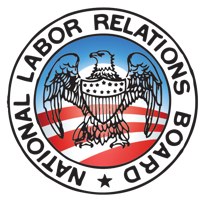 By John Raudabaugh, Former NLRB Board Member
By John Raudabaugh, Former NLRB Board Member
The Noel Canning decision by the D.C. Circuit Court of Appeals has the potential for far-reaching consequences in many areas of the law. The balance of powers between the executive and legislative branches have been recalibrated based on the court’s opinion that President Obama’s recess appointments to the National Labor Relations Board (NLRB) on January 4, 2012 were unconstitutional. The same issue is pending in other circuits, making the case all the more likely to come before the U.S. Supreme Court.
Where labor law is concerned, Noel Canning voids all NLRB decisions rendered since Richard Griffin, Sharon Block, and Terrence Flynn, Jr. were recess appointed to the Board on January 4, 2012. That’s because in the 2010 decision, New Process Steel, the Supreme Court ruled that the NLRB must maintain a quorum of at least three members. Since January 4 of last year, the Board has had no more than two legally sitting members at any one time. If the Supreme Court affirms the D.C. Circuit and invalidates the three recess appointments, parties would prevail in their appeals against the Board, and all Board decisions issued after January 4, 2012 would be void including the following radical decisions:
1. Banner Estrella Medical Center, 358 NLRB No. 93 (July 30, 2012) [Griffin, Block; Hayes dissenting]. In a 2-1 decision, the Board held unlawful an employer’s practice of asking employees not to discuss matters related to an ongoing investigation with their co-workers. According to the majority, the employer’s directive violated Section 8(a)(1) of the National Labor Relations Act (NLRA) because it had a reasonable tendency to coerce employees in exercising their Section 7 rights to form, join or assist labor organizations. Hayes dissented reasoning that the employer merely made a suggestion and did not promulgate a rule.
2. Costco Wholesale Corp., 358 NLRB No. 106 (September 7, 2012) [Pearce, Griffin, Block], Knauz BMW, 358 NLRB No. 164 (September 28, 2012) [Pearce, Block; Hayes dissenting], and Hispanics United of Buffalo Inc., 359 NLRB No. 37 (December 14, 2012) [Pearce, Griffin, Block; Hayes dissenting]. In the Costco and Knauz decisions, the Board held that confidentiality and social media policies which would chill employees in exercising their protected Section 7 rights to form, join or assist labor organizations were unlawful. In Hispanics United, the employer fired five employees for their Facebook posts. A fired employee complained on Facebook that a co-worker “felt we don’t help our clients enough[.] I about had it. My fellow workers how do u feel?” In response, four co-workers posted that the criticism of their job performance was unfair. The Board found the Facebook conversation protected concerted activity because it was an effort to mobilize employees to take action in response to the criticism of their job performance. Hayes dissented because, in his opinion, there was no “evidence of a nexus for group action” but only individual venting.
3. Finley Hospital, 359 NLRB No. 9 (September 28, 2012) [Pearce, Block; Hayes dissenting]. The Board held that employers must continue providing annual wage increases beyond the expiration dates of applicable collectively bargained agreements despite contract language clearly limiting such actions to the duration of the agreement. Hayes dissented noting that “employers must now bargain for contractual language expressly providing that no increase will be paid beyond the contract term…and unions have been given a powerful new weapon to use during negotiations.”
4. Alan Ritchey Inc., 359 NLRB No. 40 (December 14, 2012) [Pearce, Griffin, Block]. The Board held that in the absence of a negotiated grievance-arbitration system, an employer whose employees are represented by a union must provide the union notice and an opportunity to bargain before imposing discretionary discipline (for example discharge or suspension) even when such discipline does not alter broad, pre-existing standards of conduct.
5. Piedmont Gardens, 359 NLRB No. 46 (December 15, 2012) [Pearce, Griffin, Block; Hayes dissenting]. The Board overturned Anheuser-Busch Inc., 237 NLRB 982 (1978) to hold that employers can be required to provide a union representing employees involved in an issue of employee misconduct with witness statements obtained by the employer during its investigation. The Board majority announced a balancing test requiring employers to prove a legitimate and substantial confidentiality interest that outweighs a union’s need for such information. And, an employer must raise its confidentiality concern in a timely manner and bargain with a union in good faith regarding its confidentiality interests and the union’s need for the statements. Hayes dissented recognizing the long standing Anheuser-Busch bright-line rule protecting witnesses from intimidation, coercion and retaliation.
6. WKYC-TV Inc., 359 NLRB No. 30 (December 15, 2012) [Pearce, Griffin, Block; Hayes dissenting]. The Board overturned Bethlehem Steel, 136 NLRB 1500 (1962), case precedent for more than half a century, to now require employers to continue deducting union dues pursuant to a contractual checkoff obligation even after the collective-bargaining contract expires. Hayes dissented reasoning that dues checkoff, no-strike/no-lockout, and arbitration provisions are all “uniquely of a contractual nature” and expire with the contract term.



